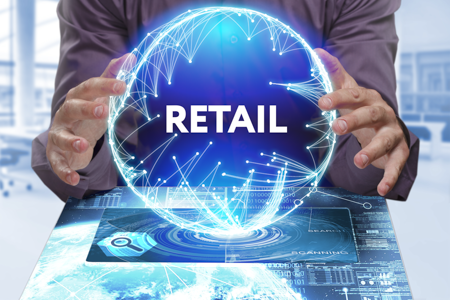
Retail technology trends for 2022
One noticeable change brought on by the pandemic was the need for retailers to transform digitally. Retailers big and small are now adopting and implementing new digital retail technologies to achieve operational efficiencies, meet customer needs, overcome labor shortages and more.
However, it can be challenging to understand what types of retail technology trends are taking the industry by storm. Continue reading to learn more about the top retail technology trends and their impact on the industry in the remaining months of 2022.
- Experiential Retail
In-store shopping at brick-and-mortar locations is becoming more about the customer experience in addition to sales. Stores must now compete with online retailers, which are convenient and affordable, to deliver exceptional service to anyone walking through the door. Retailers can use new technologies to level up their CX and power their experiential retail strategy.
For example, some stores are experimenting with augmented and virtual reality for their customer experience. The shoe brand TOMS used VR in 100 stores, virtually transporting customers to Peru to see the positive effects of TOMS's social impact campaign.
- Contactless Stores
As their name suggests, contactless stores use advanced technology to enable a seamless, touch-free shopping experience. The goal is to minimize the amount of contact or friction a customer would typically experience in a traditional shop. One of the most well-known examples of a contactless store is Amazon Go.
Amazon Go locations use advanced Just Walk Out technology -- including computer vision, sensor fusion and deep learning. Customers scan a barcode to enter the store, take the items they need and walk out. The technology monitors what people take off shelves and add them to a customer's virtual shopping cart. After they leave the store, they pay using a pre-saved payment method.
- Metaverse
Talk of the Metaverse has dominated headlines lately, especially in the big tech industry. Famous tech leader Mark Zuckerberg reportedly envisions around one billion people using Metaverse in the future. It will be a central hub built around the retail sector and social connections.
While the Metaverse is not yet mainstream, some brands are getting a headstart. Luxury brand Louis Vuitton launched Louis The Game -- a mobile game with unique, embedded and exclusive NFTs. Retailers interested in building a presence in the Metaverse will require new IT skills in-house or with high-performing, established vendors.
- Marketing Automation
Many e-commerce companies are leveraging marketing automation technologies to handle routine tasks so human marketers can spend time on high-level projects. For example, marketing automation programs are capable of:
- Recording customer information
- Organizing customers into segments
- Send automated emails or other marketing messages
- Serving ads to customers based on the segments they're in
- Analyze customer habits, preferences and demographics
Marketing automation solutions can help retailers increase conversion rates and sales, amongst other benefits. This automation essentially pays for itself as retailers use it, so it's a trending piece of retail tech many expect to grow.
- Buy Online, Pick Up In-store
-
One trend that took retail by storm at the height of the COVID-19 pandemic is the buy online, pick up in-store model. For this business model to work, retailers must implement certain technologies for their operations and end-users. Customers should be able to scroll through a retail website and see what products are available in real-time, order their products and pick up their orders within the same day.
As a result, retailers must gain more visibility into their inventory, which may require them to use stock and supply-chain management solutions. Additionally, stores must have a mobile app and an established online presence for this model to work successfully. BOPIS retailers can also improve CX using AR, geolocation or perimeter sensors.
- Hyper-personalization
This is another retail trend that requires companies to leverage new technologies. According to McKinsey, customer personalization will be a prime driver of marketing success within the next five years.
For example, companies such as Macy's, Starbucks and Sephora use GPS technology to send customers relevant ads, notifications or discounts if they are near a store. Some are giving sales associates apps that automatically generate personalized customer recommendations.
Retailers should know which technologies could provide the most return on investment, lead to higher conversion rates and boost revenue for the rest of 2022.
Using Retail Tech Trends to Guide Investment Decisions
The past couple of years were unprecedented and unexpected for the retail industry. Retailers had to grapple with the onset of the COVID-19 pandemic, ongoing supply-chain disruptions and ever-changing customer expectations and behavior.
As a result, the pandemic accelerated the retail industry's need to adopt digital technologies. Retailers should refer to the list above to decide which technologies could benefit their business the most.
https://betanews.com/2022/07/09/retail-technology-trends-2022/